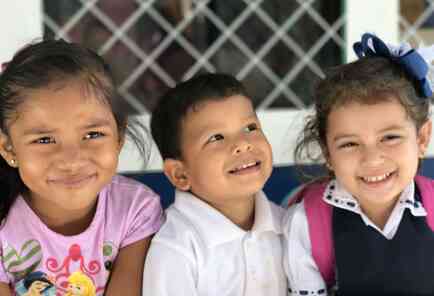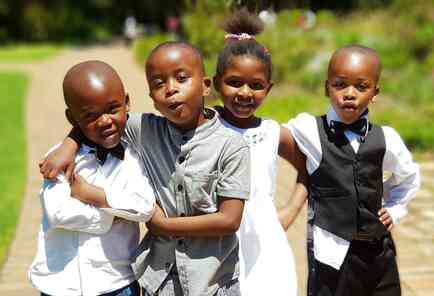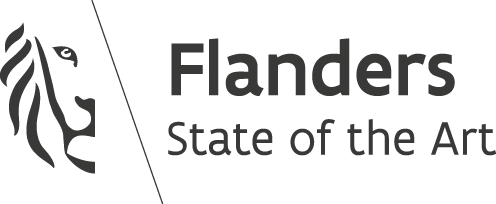Vietnam is changing rapidly. To reach their future potential, primary school pupils need a wide range of skills, including cognitive, social, emotional, physical and creative skills. The school culture in today's Vietnam is highly academic and results-oriented. Classroom practice is therefore very teacher- and knowledge-oriented. To change that, the iPLAY programme (Integrating Play-based Learning Activities for Young learners) was installed by VVOB in Vietnam. Videos make the programme even more comprehensible and are designed as an educational handbook for teachers and parents of primary school children.
To transform the knowledge-based education system into one that provides learners with a wide range of skills, the Ministry of Education and Training (MoET) introduced a new competency-based curriculum. Play-based learning (LtP) has great potential to contribute to the achievement of the objectives of the new curriculum.
In attempting to successfully integrate LtP into the classroom, school leaders, teachers and caregivers' deeply held beliefs about learning as a primarily cognitive process separate from play need to be fundamentally changed towards an understanding of the role of LtP in promoting a wide range of skills.
The aim of the iPLAY programme is to provide school leaders and primary school teachers with the competences to systematically integrate the pedagogy of Learning through Play into their school environment and classroom practice.
The benefits of playing and learning through playing are explained in this video. Children are expected to behave creatively and actively, but these skills must be nurtured, supported and developed as children grow up, otherwise they will weaken. This is illustrated by explaining how a child’s brain functions.
Wouter Boesman, Country Programme Manager VVOB in Vietnam agrees: “Vietnamese parents believe teaching goes via learning, sitting still and listening, but pupils learn better when they are active and playing.”
2020 is the first school year a new general education programme in Vietnam begins with many improvements towards the development of quality and competency of learners. At the end video of the video, you see implementations of the use of open space as students make kites using creativity and get the opportunity to experiment. A teacher concludes by saying: “Learning and playing are like butterfly wings, one cannot exist without the other.”
This video is about the importance of the start of a school day. A programme advisor leads a discussion on playful learning with other teachers in order to motivate pupils.
This can be done by:
This video starts with another conversation between a programme advisor and teachers. Together, they have decided on a common ground to install learning through play. They will do so by dividing the children into groups, installing corner-work and split the classes into different parts. Via corner-work pupils can observe, exchange and remember and retell information.
Koen Verrecht, Strategic Education Advisor for VVOB in Vietnam: “Corner-work entails a very dynamic and productive learning environment with different stations. Pupils no longer learn from the teacher alone, but also from fellow pupils, themselves and the learning materials. They investigate and experiment, it is hands-on practise, and they learn how to tackle a problem in group."
After the pupils have done all corners, they can speak in front of the whole class and share their findings. This can be difficult at first, but pupils evolve as learning through play gets more implemented. All learning through play via corner-work can be linked to the words: happiness, meaningful, social interaction, active participation, and iteration.
Learn more about CITIES, another project by VVOB in VietnamOr learn more about BaMi, also a project by VVOB in Vietnam
To transform the knowledge-based education system into one that provides learners with a wide range of skills, the Ministry of Education and Training (MoET) introduced a new competency-based curriculum. Play-based learning (LtP) has great potential to contribute to the achievement of the objectives of the new curriculum.
In attempting to successfully integrate LtP into the classroom, school leaders, teachers and caregivers' deeply held beliefs about learning as a primarily cognitive process separate from play need to be fundamentally changed towards an understanding of the role of LtP in promoting a wide range of skills.
The aim of the iPLAY programme is to provide school leaders and primary school teachers with the competences to systematically integrate the pedagogy of Learning through Play into their school environment and classroom practice.
The benefits of playing and learning through playing are explained in this video. Children are expected to behave creatively and actively, but these skills must be nurtured, supported and developed as children grow up, otherwise they will weaken. This is illustrated by explaining how a child’s brain functions.
Wouter Boesman, Country Programme Manager VVOB in Vietnam agrees: “Vietnamese parents believe teaching goes via learning, sitting still and listening, but pupils learn better when they are active and playing.”
2020 is the first school year a new general education programme in Vietnam begins with many improvements towards the development of quality and competency of learners. At the end video of the video, you see implementations of the use of open space as students make kites using creativity and get the opportunity to experiment. A teacher concludes by saying: “Learning and playing are like butterfly wings, one cannot exist without the other.”
This video is about the importance of the start of a school day. A programme advisor leads a discussion on playful learning with other teachers in order to motivate pupils.
This can be done by:
- Having a check-in moment. In the video, you can see a teacher letting the pupil of the day greet the others in a way that each child chooses (f.e. hug, high five, etc.).
- Going through the plan of the day, so pupils can be proactive with learning
- Introducing games to the lessons like puzzles and link them to the subject of the next lesson.
This video starts with another conversation between a programme advisor and teachers. Together, they have decided on a common ground to install learning through play. They will do so by dividing the children into groups, installing corner-work and split the classes into different parts. Via corner-work pupils can observe, exchange and remember and retell information.
Koen Verrecht, Strategic Education Advisor for VVOB in Vietnam: “Corner-work entails a very dynamic and productive learning environment with different stations. Pupils no longer learn from the teacher alone, but also from fellow pupils, themselves and the learning materials. They investigate and experiment, it is hands-on practise, and they learn how to tackle a problem in group."
After the pupils have done all corners, they can speak in front of the whole class and share their findings. This can be difficult at first, but pupils evolve as learning through play gets more implemented. All learning through play via corner-work can be linked to the words: happiness, meaningful, social interaction, active participation, and iteration.
Subscribe to our (Dutch) newsletter
|
English





